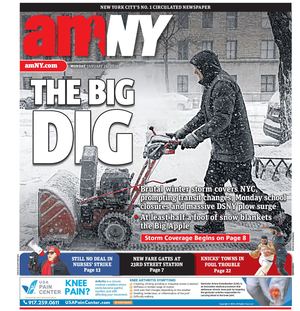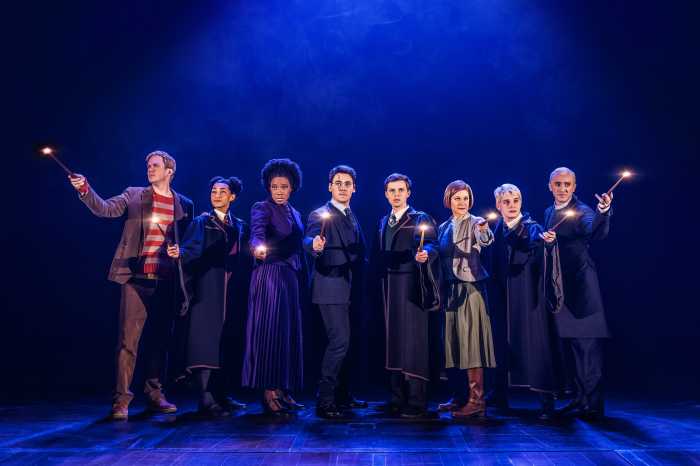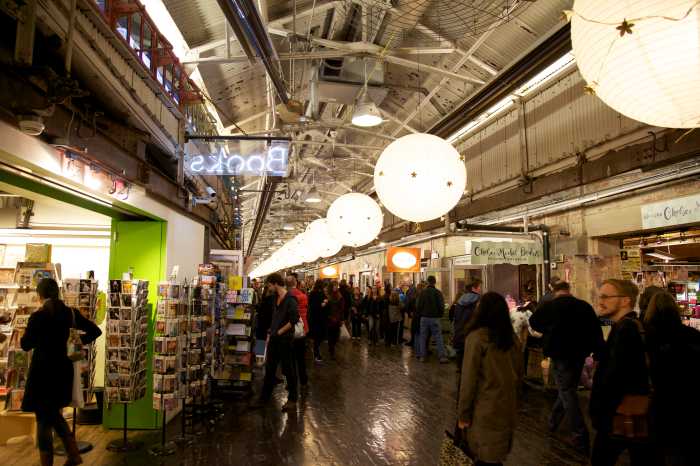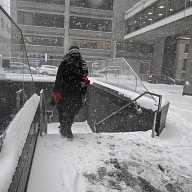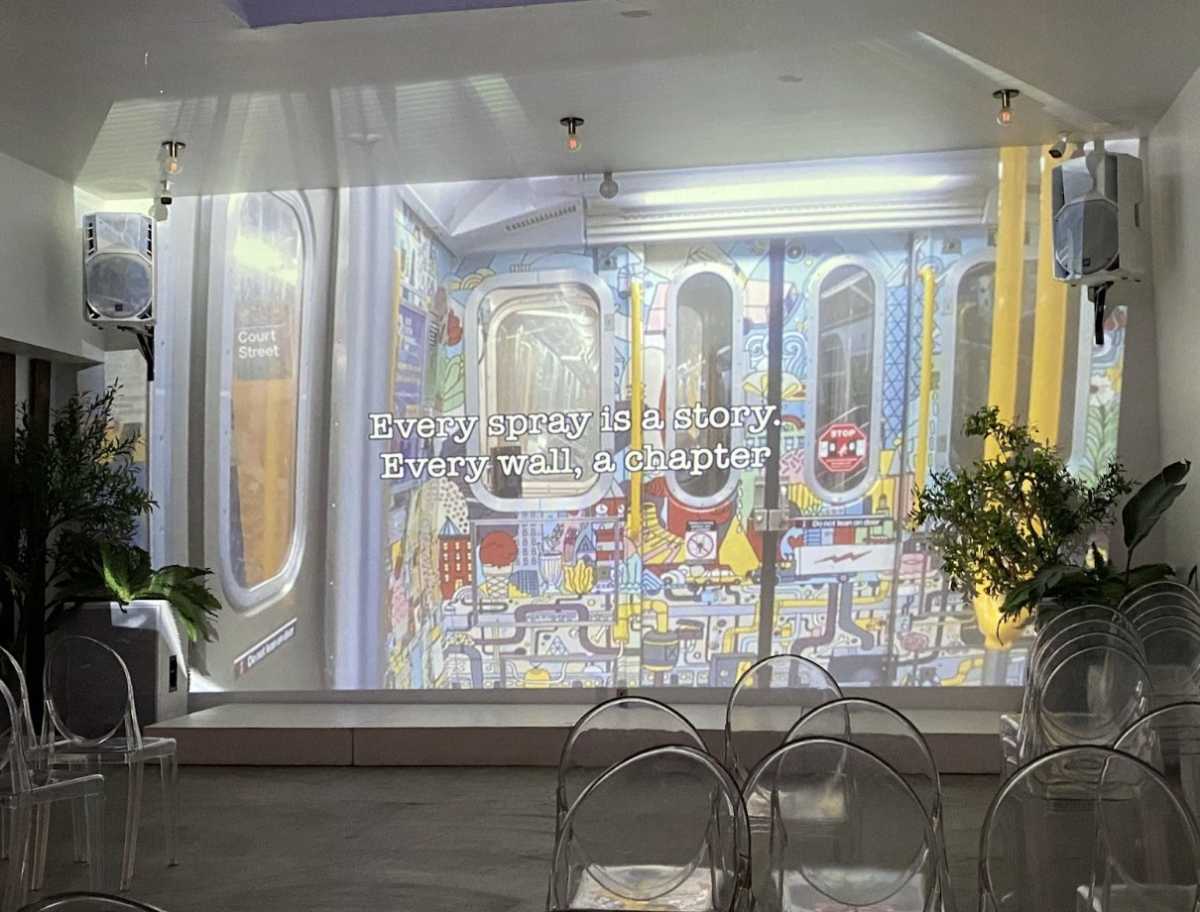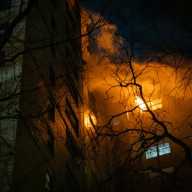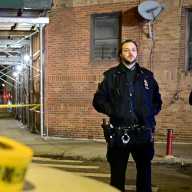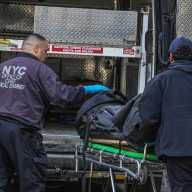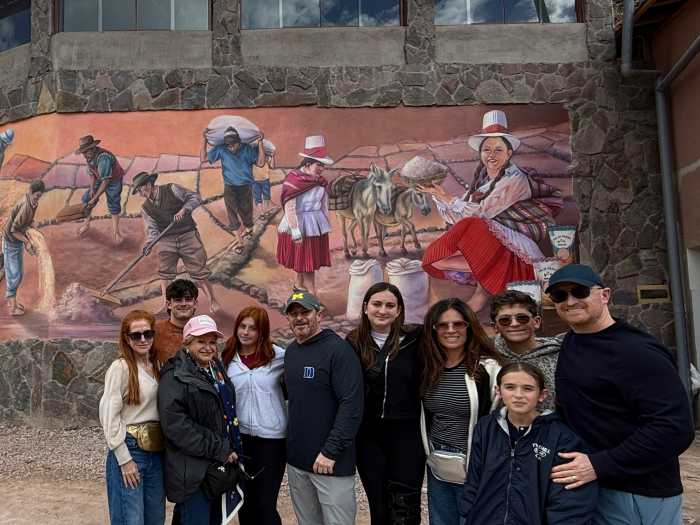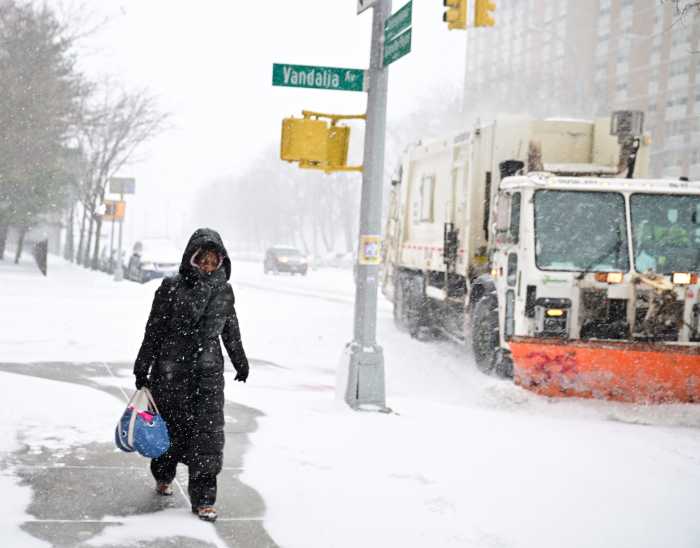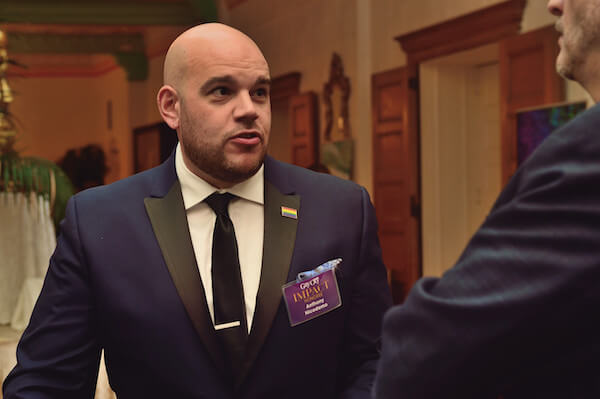The job of evening news anchor is a storied position, one that “CBS Evening News” anchor and managing editor Scott Pelley takes very seriously.
Even in a landscape where the public can get information from just about anywhere at any time, that doesn’t mean that the information is of good quality.
“What we’re trying to do is establish on the ‘CBS Evening News’ a brand and a place where people can go to for reliable information,” explains Pelley, who also hosts “60 Minutes.” “Information that people have wondered about all day long, all the crazy things that people see on the Internet and wonder, ‘Is that true?’ they know that at CBS News there are people who are very experienced in journalism — decades in it — and have worked their tails off all day long trying to verify facts and separate facts from fiction.”
amNewYork spoke with Pelley, 57, about the business of news.
How do you get the “CBS Evening News” to stand out among the crowded news market?
We’re distinguishing ourselves by being the most credible news source in the evening news space. Jeff Fager, when he took over as the chairman of the news division, wanted us to cover the day’s news, and to do it in a serious way and give the audience some context about why things are happening, but not to allow the broadcast to be subsumed by celebrity gossip and all of that kind of thing. … Cover the world on those issues that will make a difference to the United States and that’s how we’re trying to distinguish ourselves in this enormous tsunami of news media that we experience today.
Do you savor getting to get out from behind the desk and cover stories?
It’s indispensable, and one of the great values that I derive from my work at “60 Minutes” is that I have an opportunity to do that quite often. A few weeks ago I was in Iraq covering ISIS, talking with Iraqi troops, talking with people who were refugees from the ISIS forces, and really getting a great on-the-ground understanding of what’s happening there. So when I come back to the anchor seat, and I’m writing things for the “Evening News” and I’m helping our correspondents in the region with their scripts, I’ve just been there and I have a good understanding from the ground of what’s going on there. … So I think getting out in the field, seeing things for yourself, covering stories yourself is absolutely indispensable if you’re going to consider yourself to be the managing editor of the “Evening News.”
You’re going to war zones. What’s your fear like?
I’m not fearless. But when you go into situations like the war zones we’ve covered over the years — Iraq and Afghanistan and elsewhere — it’s not a sense of fear, it’s a sense of understanding that your life is at risk, understanding that you need to mitigate that risk and being sensible about how you mitigate the risk. But it’s not a sense of fear. Your heart doesn’t start to race and all of that. It’s much more a sense of “I’ve been here before, I’ve done this before, I have a great team around me. Now, what are the threats, let’s be sensible about them and let’s get out of here in one piece.” It’s much more analytical than emotion at this point, but I’ve been covering wars for CBS since 1990, the Gulf War, that’s the first war I covered for CBS. I’ve been to Iraq 25 times, I went to Afghanistan 10 times. I’ve covered conflicts in Congo, Central America and all around the world. So, after a while, you get a little bit used to all that.
What is the lasting legacy of “60 Minutes”?
I think of “60 Minutes” as a national asset. It is a place where many millions of Americans can go every week to get serious news, a serious understanding of ISIS, for example, and yet at the same time, see fascinating stories about science or people that are changing the world. And I just think it’s a national asset, there is nothing like it in the world, which is why we’ve been on the air for 47 years and we’re still near the top of the charts. It’s a blessing.
What do you see about the future of journalism?
Here’s what concerns me about the media environment today: We live in an age where never before in human history is more information available to more people. That’s a great thing. But it’s also true that never in human history has more bad information been available to more people. And I think that’s a frightening thing for our democracy because there is no democracy without journalism. And the quality of our country and the quality of our democracy is linked directly to the quality of our journalism, how good the information the people at home possess.
How would you fix that?
What I would like to see in journalism today is a renaissance that spreads to the Internet — what many consider to be old-fashioned journalistic values. The kind of things that you ask yourself, that I ask myself everyday about the stories that we’re writing. Is it right? Is it fair? Is it honest? Those values are not common on the Internet. They are common among major newspapers, they are common among major television networks, etc., but they need to become the ruling principles of what we’re reading on the Internet. It’s never going to be perfect, it’s never going to be pervasive, but I think we’re at an inflection point here in journalism and in media now where we’re making a decision about the quality of our country going forward because of the quality of the information that we’re offering our audience. It worries me a great deal, and I’m often on my bandwagon banging the drum, particularly with young people who are interested in journalism because we need them, but we need them to be good.
What are the advantages to being stationed out of New York City?
Well, all the advantage of New York City. To live in the capital of the world is, first of all, a great place for a journalist to be. You can get anywhere in the world in 24 hours, the best restaurants in the world, or many of the best restaurants in the world are here. Broadway is a jewel that my wife and I take advantage of all the time. You shouldn’t live in New York and not take advantage of Broadway, and the Metropolitan Opera and the Metropolitan Museum. We haunt those places all the time. Those are a few of the places that leap to mind, mostly being in such a diverse and vibrant kind of place really informs your creativity as a writer I think. Everywhere you go, you’re bombarded with new sights and sounds, and occasionally smells and that really keeps your mind alive.
You’re all over the world for your job. What do you do to relax?
Well, several answers to that question, because I think relaxing is important. I sail. I really enjoy sailing, that’s an incredibly relaxing thing. I like the outdoors and I enjoy being in the natural world. It just settles me completely. My family and I go skiing out West quite a bit, we go sailing in the summertime and my wife has always made it a very high priority to show our children the world and we’ve been doing that for a long time. My kids are now 22 and 19, but they have seen a great portion of the world. They’ve been on elephant backs in India, they’ve been to Antarctica, they’ve been to Angkor Wat in Cambodia and many, many other places, because my wife felt that the best education a young person can receive is travel. And so we’ve really been world travelers. It’s been a constant family adventure, really, over these last almost 20 years.
On TV: Scott Pelley can be seen on the “CBS Evening News” nightly at 6:30 p.m. and on “60 Minutes” on Sundays at 7 p.m.
